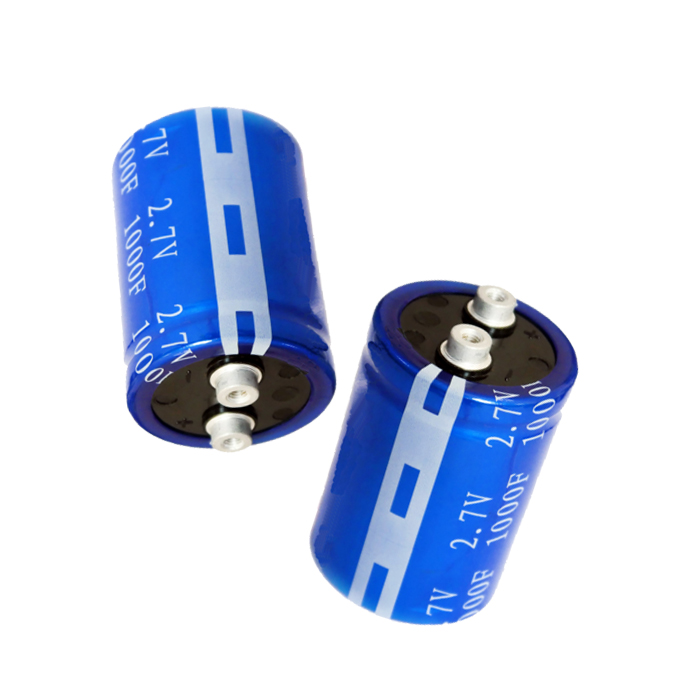Consulting phone:
135-3037-2041
(Mr.Wang)
The reason why super lithium supercapacitors are called "super":
1. A supercapacitor can be viewed as two non-reactive porous electrode plates suspended in an electrolyte, on which electricity is applied, the positive plate attracts negative ions in the electrolyte, and the negative plate attracts positive ions, actually forming two In the capacitive storage layer, the separated positive ions are near the negative plate, and the negative ions are near the positive plate.
2. Supercapacitors store energy in the separated charges. The larger the area used to store the charges and the denser the separated charges, the greater the capacitance.
3. The area of the traditional capacitor is the flat area of the conductor. In order to obtain a larger capacity, the conductor material is rolled for a long time, and sometimes a special structure is used to increase its surface area. In traditional capacitors, insulating materials are used to separate its two polar plates, generally plastic films, paper, etc. These materials are usually required to be as thin as possible.
4. The area of the supercapacitor is based on the porous carbon material. The porous structure of the material allows its area to reach 2000m2/g, and a larger surface area can be achieved by some measures. The distance the supercapacitor charges are separated is determined by the size of the electrolyte ions that are attracted to the charged electrodes. This distance (<10 Å) is smaller than what can be achieved with conventional capacitor film materials.
5. The huge surface area and the very small charge separation distance make the supercapacitor have a surprisingly large electrostatic capacity compared with the traditional capacitor, which is also its "super".
Preferences
The following basic parameters determine the size of the capacitor chosen:

Supercapacitor Module
1. Z high working voltage;
2. Working cut-off voltage;
3. Average discharge current;
4. How long is the discharge time?
Selection methods of supercapacitors and batteries
Compared with batteries, supercapacitors have the following characteristics:
a. Ultra-low series equivalent resistance (LOW ESR), power density (Power Density) is dozens of times that of lithium-ion batteries, suitable for high current discharge (a 4.7F capacitor can release more than 18A instantaneous current).
b. Super long life, charging and discharging more than 500,000 times, which is 500 times that of Li-Ion batteries and 1,000 times that of Ni-MH and Ni-Cd batteries. If the super capacitor is charged and discharged 20 times a day, it can be used continuously for 68 times. year.
c. It can be charged with high current, the charging and discharging time is short, the requirements for the charging circuit are simple, and there is no memory effect.
d. Maintenance-free and sealable.
e. Wide temperature range -40℃~+70℃, general battery is -20℃~60℃.
f. Supercapacitors can be formed in series and parallel to form a supercapacitor module , which can withstand pressure and store higher capacity.